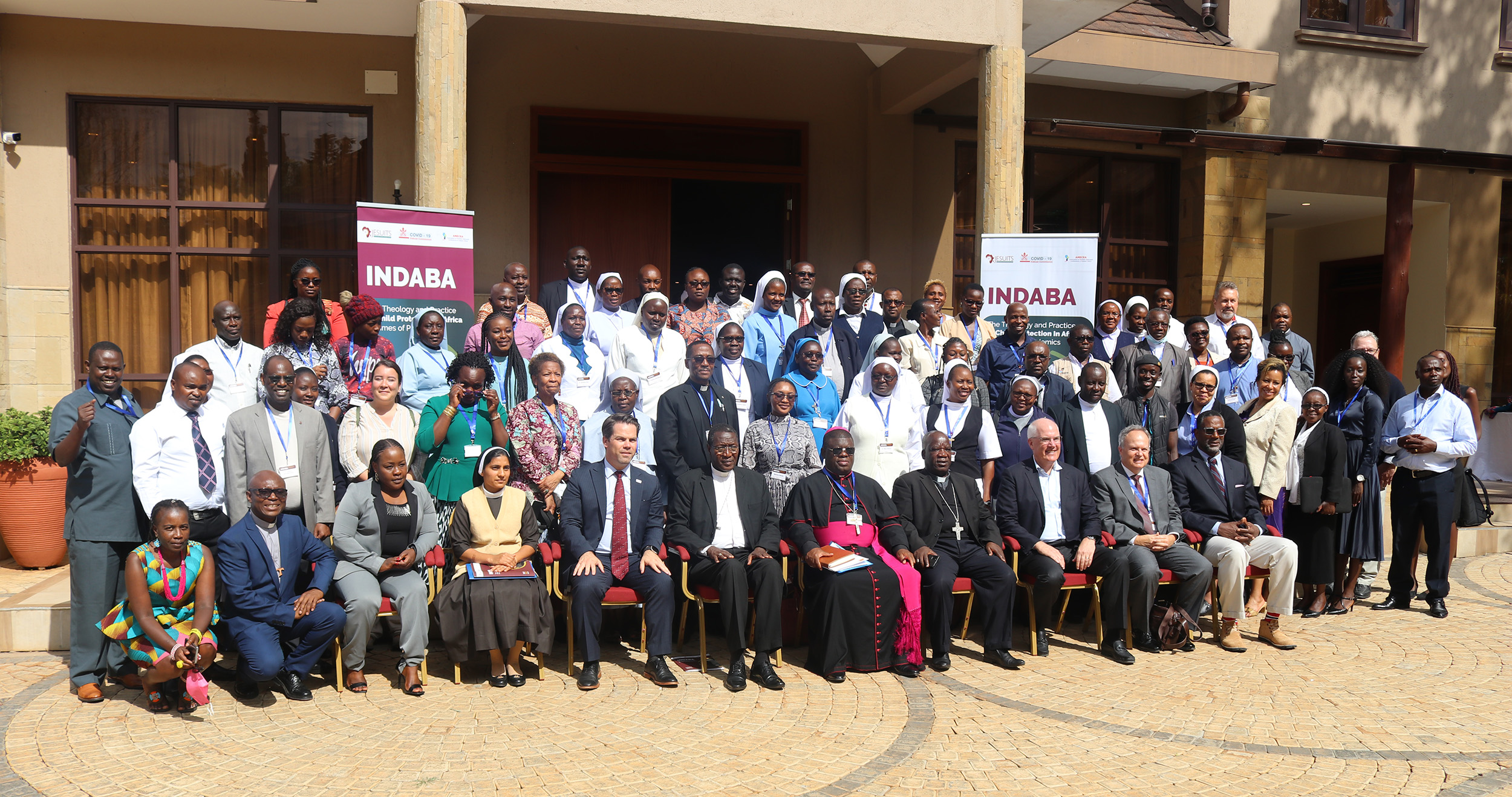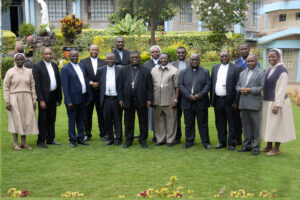AMECEA: Care, Protection of Children Requires “Human Qualities,” Says AMECEA Chairman
Bishop Charles Kasonde, Chairman AMECEA
Sr. Jecinter Antoinette Okoth, FSSA
Chairman of the Association of Member Episcopal Conferences in Eastern Africa (AMECEA) has encouraged participants at a conference focusing on child protection, to develop human qualities and promote the same in the society so as to create safe environment for children.
Speaking to nearly 100 delegates drawn from across Africa, Europe and United States during his keynote address, the AMECEA chairman Bishop Charles Sampa Kasonde highlighted that developing human qualities is significant in nurturing the life of children.
“If we do not grow those human qualities of care, compassion, love and affection for children, no matter what we do, our systems, rules and processes will be devoid of life and will not be effective in truly protecting our children,” Bishop Kasonde said at the commencement of the two-day conference held in Kenya’s capital, Nairobi.
He emphasized on Monday, May 23, at a conference dubbed as “An Indaba on a Theology of Children Protection in Times of Pandemics” that the Church is in a better position to help herself and the community develop the human qualities needed for “true child protection.”

As a Church, the Local Ordinary of Solwezi Diocese, Zambia, said: “We learn from Jesus the caring and compassionate Shepherd, how we can grow in having concern, care and true affection for children. Jesus came to show us in a very human way that what God asks of us is that we be human and tender to our children.”
The two-day indaba from 23-24 May, was convened by the Jesuit Justice and Ecology Network Africa (JENA) of the Jesuit Conference on Africa and Madagascar (JCAM) in collaboration with The Africa Taskforce of the Covid-19 Commission of the Vatican Dicastery for the Promotion of Integral Human Development, The Association of Member Episcopal Conferences in Eastern Africa (AMECEA) and the Catholic Care for Children (CCC).
Bishop Kasonde acknowledged that Covid-19 challenges experienced in the region “have sharpened our thinking and made the need for deep reflection on how we care for and protect the most vulnerable in our society ever more important,” adding that, “how we care for and safeguard children must be at the heart of that discernment.”
Referencing Pope Francis’ message that the society is facing a universal problem affecting everyone due to challenges faced by children, the Bishop said: “Children face multiple forms of violence, exploitation and abuse which can be physical, emotional or sexual. Violence and abuse against children happen in every country and usually in those places where children should be protected like their homes, schools and even Church.”
The Chairman of AMECEA emphasized that there are situations when cultures and contexts make children more vulnerable in Africa than exploitation and abuse.
“In a context like ours, Africa, that has widespread poverty, armed conflict, natural disasters and other emergencies, children get exposed to even greater vulnerability and risks including injury and death,” the Bishop said and disclosed that these are the situations that force children to flee from homes, separate from families and get even more exposed to exploitation as “girls experience gender-based violence.”
According to Bishop Kasonde, some forms of violence are “uniquely African dimension and need uniquely African solutions or African-centered conversations to address them.”
“It is not uncommon in our context to hear of millions of girls that have been subjected to child marriage, Female Genital Mutilation (FGM) and child labor,” the Bishop disclose and continued, “All these are human rights violation that threaten the dignity and life of our children.”
He cautioned that child protection is not just coming up with isolated activities like orphanages, care homes or feeding programs where children can be taken care of but “developing systems that guarantee our children their right to life and protection, access to vital social services and fair justice.”
Bishop Kasonde encouraged participants who were not only Christians but also from other religions on the need to follow the example of Jesus the Good Shepherd and go after “migrants, refugee children, victims of child labor or trafficking, children living with disabilities or in alternative care,” since child protection means taking care of the children’s, “physical, mental and psychological needs to protect their future.”
He further noted that “sober discernment, deep and mature reflection” on what needs to be done towards this process of protection of children is key and it calls for “synodality, listening and encounter.”
Even though children were not the face of Covid-19 pandemic, “they risk being among its biggest victims,” the Prelate said during his keynote address and concluded that as believers in the Lord “we need to do our level best, take responsibility, do what is humanly possible in coming up with Theology for child care and protection while listening to the voice of God when confronted with challenges and troubles in life.”


